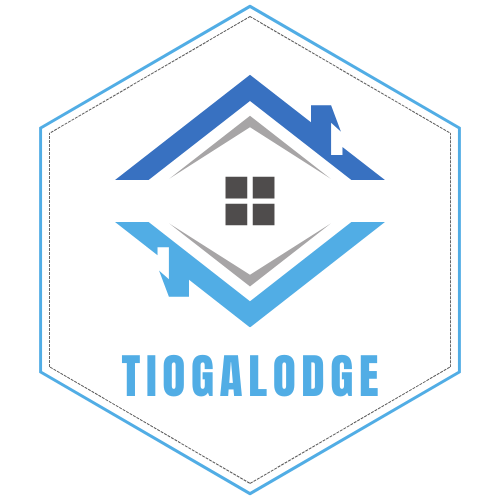Table of Contents
ToggleIn today’s digital landscape, collecting business data online is crucial for informed decision-making and strategic planning. With the right tools and techniques, businesses can harness valuable insights to drive growth and enhance customer experiences. EyeXBusiness stands out as a powerful platform that simplifies this process, enabling users to gather, analyze, and utilize data effectively.
Understanding how to leverage EyeXBusiness can transform the way companies approach data collection. From identifying key metrics to implementing data-driven strategies, mastering this platform is essential for staying competitive. This article will explore practical steps and best practices for collecting business data online, ensuring organizations can make the most of their digital resources.
Understanding Business Data Collection
Business data collection involves gathering relevant information that aids organizations in making strategic decisions. This practice ensures businesses remain competitive in their respective markets. Efficient data collection requires well-defined objectives, choosing the appropriate tools, and establishing systematic processes for information gathering.
Types of Business Data
- Quantitative Data: Numeric information useful for statistical analysis. Examples include sales figures and customer demographics.
- Qualitative Data: Descriptive information that provides insights into customer behavior. Examples include survey responses and customer reviews.
Benefits of Business Data Collection
- Informed Decision-Making: Accurate data allows leadership to make strategic choices backed by credible evidence.
- Increased Efficiency: Streamlined data collection processes reduce time spent on decision-making tasks.
- Enhanced Customer Insights: Understanding customer preferences informs product development and marketing strategies.
Data Collection Methods
- Surveys: Online surveys capture customer opinions and preferences efficiently.
- Web Analytics: Tools like Google Analytics track website performance and user behavior, offering valuable insights.
- Social Media Monitoring: Listening to social media discussions helps identify trends and customer sentiments.
Best Practices for Data Collection
- Define Clear Objectives: Set specific goals for data collection to focus efforts and resources effectively.
- Ensure Data Accuracy: Use reliable sources and validation techniques to maintain data integrity.
- Maintain Compliance: Adhere to legal requirements such as data protection regulations to safeguard user privacy.
Implementing effective business data collection strategies through platforms like EyeXBusiness fosters a culture of data-driven decision-making, empowering organizations to thrive in the digital landscape.
Importance Of Collecting Business Data Online

Collecting business data online is vital for organizations aiming to make informed decisions and stay competitive. EyeXBusiness serves as a key tool for simplifying this process, enabling businesses to gather, analyze, and utilize data effectively.
Benefits For Businesses
- Informed Decision-Making: Businesses access accurate, real-time data to inform strategies and operational adjustments.
- Increased Efficiency: Data insights streamline processes and enhance resource allocation.
- Enhanced Customer Insights: Collecting qualitative data uncovers customer preferences and behavior patterns, allowing for tailored offerings.
- Competitive Advantage: Organizations leveraging data analysis maintain an edge through informed positioning in the market.
- Performance Measurement: Key performance indicators (KPIs) derived from data help assess success and guide future initiatives.
Challenges In Data Collection
- Data Accuracy: Ensuring the quality and reliability of collected data poses a challenge and may affect decision-making.
- Data Integration: Combining data from various sources can lead to inconsistencies and complications.
- Compliance Issues: Adhering to regulations like GDPR requires careful management of collected data.
- Resource Allocation: Collecting and analyzing data demands personnel and technology investments, which may be limited.
- Data Overload: Too much data can complicate insights, hinder clarity, and lead to analysis paralysis.
Methods To Collect Business Data Online
Collecting business data online involves leveraging various tools and methods. These approaches enhance understanding of customer behavior and market trends, fostering data-driven decision-making.
Utilizing EyeXBusiness Tools
EyeXBusiness offers integrated tools for seamless data collection. It provides comprehensive analytics dashboards for real-time insights. Users can automate data gathering processes, save time, and minimize manual errors. Features like customizable data fields allow for tailored data collection specific to business needs. Organizations can easily track key metrics, enabling informed strategic decisions that align with business goals.
Surveys And Questionnaires
Surveys and questionnaires serve as effective methods for capturing customer opinions and preferences. By designing targeted questions, businesses can collect quantitative and qualitative data. Online survey platforms enable quick distribution and real-time response analysis. Example formats include multiple-choice, open-ended, and Likert-scale questions. Ensuring user-friendly designs increases response rates, leading to more robust data for decision-making.
Social Media Insights
Social media platforms provide valuable insights into consumer behavior and sentiment. By monitoring engagement metrics such as likes, shares, and comments, businesses can assess public perception of their brand. Social listening tools aggregate data from various channels, identifying trends and customer needs. Analyzing demographic data from social media profiles helps in creating targeted marketing strategies and enhancing customer relationships.
Best Practices For Data Collection
Effective online data collection requires adherence to established best practices. These practices enhance data integrity and foster trust among users, leading to improved business strategies.
Ensuring Data Privacy
Data privacy is a critical component of online data collection. Organizations must prioritize transparency when collecting personal data. Compliance with regulations, such as GDPR and CCPA, mandates that businesses inform users about data usage. Employing secure data collection methods protects sensitive information from breaches. Implementing measures like encryption and access controls safeguards user data, fostering trust and ensuring legal compliance.
Maintaining Data Quality
Maintaining high data quality is essential for accurate analysis. Organizations should establish clear data collection objectives that define the type of data needed. Regularly validating data improves accuracy and reliability. Utilizing standardized formats for data entry minimizes discrepancies. Training staff on data entry protocols enhances consistency across datasets. Conducting periodic audits helps identify and rectify errors, ensuring ongoing data integrity for informed decision-making.
Mastering online business data collection is essential for organizations aiming to thrive in a competitive landscape. By leveraging platforms like EyeXBusiness, companies can streamline their data gathering processes and gain valuable insights. Effective strategies not only enhance decision-making but also foster a culture of data-driven practices that lead to sustained growth.
As businesses navigate the complexities of data collection, focusing on accuracy and compliance remains crucial. Embracing best practices and utilizing the right tools will empower organizations to harness their data effectively. Ultimately, those who prioritize strategic data collection will find themselves better equipped to adapt and succeed in an ever-evolving digital world.




